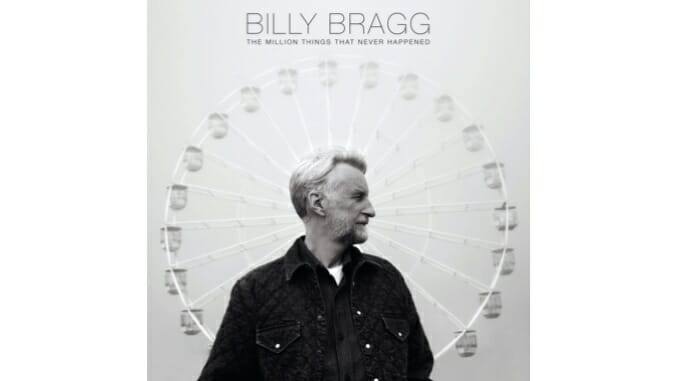Billy Bragg Explores Resilience on The Million Things That Never Happened
Singer’s latest is his most reflective album in a career stretching for nearly 40 years

Of course Billy Bragg is singing about resilience on his latest album: in one form or another, he’s been exploring that idea all along. The Million Things That Never Happened is Bragg’s first solo LP since 2013, and a million things have definitely happened since then, including a worldwide surge in political nativism, Black Lives Matter and a growing awareness of police brutality, and a global pandemic. In other words, there has been plenty to test the resilience of a singer and songwriter with Bragg’s outlook.
From the start, the English musician has been singing about overcoming, powering through and seeking connection. He was often more pointed about it early in his career, when he delivered earnest lyrics in a pronounced working-class accent over abrasive solo-electric guitar—see “A New England” or “To Have and Have Not,” both from his 1983 debut. Although time has softened the sharp edges that characterized Bragg as a young man, and the sound of his music has evolved, he has never strayed far from the themes that inspire him.
They’re apparent on the new album in “Mid-Century Modern,” where he acknowledges that even his own views remain a work in progress. Admitting that you don’t have all the answers is an act of deference from a guy whose songs have been rallying cries for equality and justice for close to 40 years, but Bragg is self-assured enough to open himself up to new perspectives. “It’s hard to get your bearings in a world that doesn’t care / Positions I took long ago feel comfy as an old armchair,” he sings over a blend of steel guitar and thrumming organ, punctuated by a searing guitar lick in the instrumental breaks. “But the kids who pulled the statues down, they challenged me to see / The gap between the man I am and the man I want to be.”
-

-

-

-

-

-

-

-

-

-

-

-

-

-

-

-

-

-

-

-

-

-

-

-

-

-

-

-

-

-

-

-

-

-

-

-

-

-

-

-








































